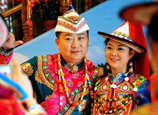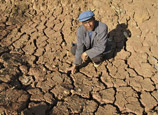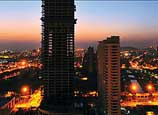
Preferential policies do not stop the rich emigrating and they aggravate the unfairness in the distribution of wealth
t the just-concluded session of the Chinese People's Political Consultative Conference National Committee, Jia Kang, a member of the top advisory body, said the individual income tax is concentrated on people with low and middle incomes, as rich people are able to avoid paying it.
As a finance and tax expert with the Research Institute for Fiscal Science affiliated to the Ministry of Finance, some of Jia's comments on tax have sparked controversy in the past. However, his latest remarks are less controversial as it is indisputable that the middle- and lower-income groups have become the main source of individual income tax revenues. Such a tax structure has aggravated the unfairness in the country's income distribution and contributed to its failure to narrow the ever-widening gap between the rich and poor.
China's current tax threshold for individual incomes is 3,500 yuan ($562), an income level that is barely sufficient to afford basic foods and clothing in some big cities if prices for housing and other goods are taken into account. Households with incomes around this level sometimes cannot meet their needs if they have an elderly member of the family or a child to support. Wealthy people on the other hand usually employ a variety of channels to avoid paying income tax.
The key reason middle- and lower-income earners are the main source of income tax is the fact employers automatically deduct their employees' income tax. Such a practice has made it convenient for owners of private enterprises to give themselves a very low or even zero salary as a way of evading income tax.
The individual income tax is entrusted with regulating the country's income distribution among different groups, and aims to help narrow the rich-poor gap. Some of China's rich people fulfill their taxpaying obligation in the form of business tax or value-added tax. But these tax categories are different from the individual income tax and cannot work to regulate the country's income distribution. Taxing wealthy people with the business tax instead of the individual income tax weakens government efforts to close the wealth gap.
For the majority of people on low and middle incomes, salaries constitute the lion's share of their incomes. But rich people usually have diversified channels of income. Besides corporate profits or high salaries, gains from investments in the capital, antique or art markets, or gains from property rentals or private financing provide a large portion of their incomes. The country has so far not set up an effective means to levy taxes on the incomes gained through such investment activities, which means this income is not taxed.
Due to the unreasonable individual income distribution pattern, the gap between the rich and poor has become an outstanding issue that will seriously hamper the nation's economic development and social harmony if it remains unresolved. The central government has vowed again that the country's income distribution system will be reformed, but it needs actions to match the words.
The primary income distribution policies should prioritize the pursuit of efficiency, but equitableness and fairness should be taken into consideration in the secondary income distribution. Given that China's current tax system has compromised social fairness, decision-makers should make efforts to improve it. Taxation should serve as an effective means to promote fair income distribution.
Some hold that every citizen has a taxpaying obligation and thus there is no need to raise the 3,500-yuan tax threshold. Such a viewpoint is open to discussion given that taxpaying obligations are not reflected in the individual income tax alone. In their daily consumption, people also pay a certain amount of implicit tax. Raising the current individual income tax threshold would reduce the tax burden on low and middle-income earners and concentrate the individual income tax on wealthy people instead of poor ones.
Another viewpoint is that taxing the rich will accelerate the flow of domestic private capital out of China. This is an unnecessary concern. There are many reasons for the emerging trend of rich people emigrating abroad, such as their dissatisfaction with the domestic market environment in which private capital is squeezed by State capital, and the problems in the country's medical, education and pension systems.
Making no increased efforts to resolve these problems and using preferential tax policies alone to try and keep rich people at home will prove impotent and will not narrow the gap between the rich and poor.
The author is a Shanghai-based economics commentator.
















 Recruitment of flight security officers attracts capable men
Recruitment of flight security officers attracts capable men


![]()
